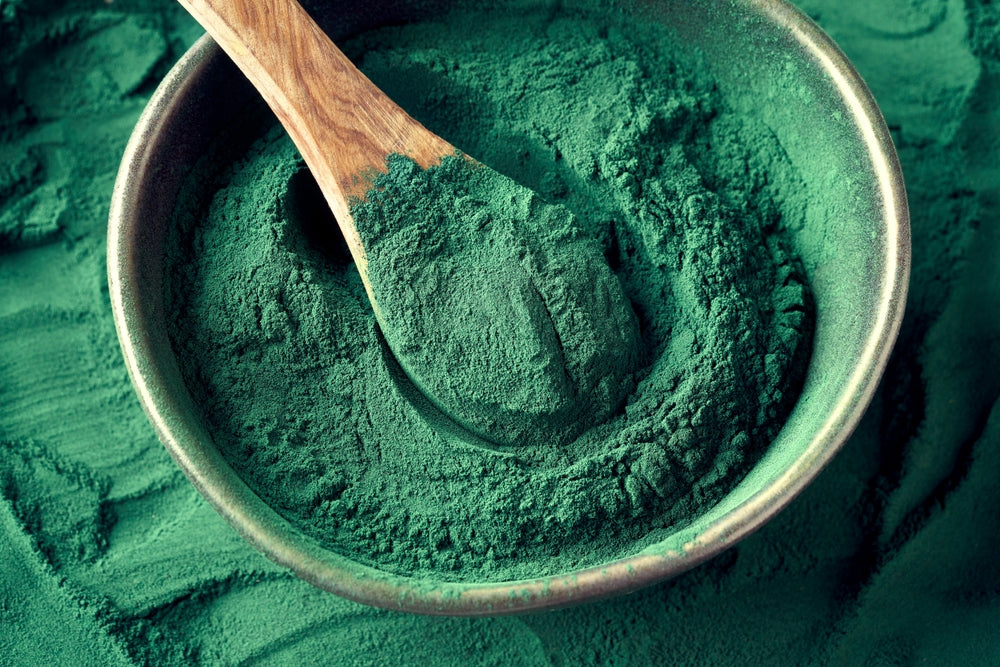Supporting Your Body’s Detox with a Heavy Metal Cleanse Diet

Share
Understanding Heavy Metals in Foods
Heavy metals are elements found in the environment, and their presence in food can stem from natural sources or human activities like mining, industrial processes, or agricultural practices. Foods grown in contaminated soil or water, or sourced from areas with industrial activity, may contain higher levels of heavy metals. While heavy metals have always existed, human activities have increased their concentration in the environment, potentially raising exposure through diet.
Foods That May Contain Heavy Metals
Certain foods are more likely to contain heavy metals due to how they’re grown or processed:
- Seafood: Larger fish like tuna, swordfish, and shark may have higher mercury levels due to bioaccumulation. Smaller fish, such as salmon or sardines, are often lower in mercury.
- Rice: Rice can absorb arsenic from soil or water more readily than other grains, especially in regions with high arsenic in groundwater.
- Leafy Greens and Fruit Juices: Depending on soil conditions, some greens or juices may contain trace amounts of heavy metals.

The presence of heavy metals in food varies by region, farming practices, and processing methods. Always check for local advisories or choose certified organic options when possible.
Why Address Heavy Metals?

Heavy metals, in high amounts, may pose health risks over time, though individual responses vary. A cleanse diet aims to minimize exposure to these substances while supporting the body’s natural ability to eliminate toxins through organs like the liver and kidneys. This approach also encourages broader dietary safety by reducing exposure to other environmental contaminants.
The Heavy Metal Cleanse Diet
A heavy metal cleanse diet emphasizes foods that support the body’s natural detoxification processes while reducing intake of potentially high-risk foods. It’s not about extreme restrictions but about making informed, balanced choices to promote wellness.
Foods to Support Detoxification

Incorporate these nutrient-rich foods, which are traditionally used to support the body’s natural detox pathways:
- Cruciferous Vegetables: Broccoli, kale, Brussels sprouts, and cabbage contain sulfur compounds that may support liver function, a key part of detoxification. Studies suggest these compounds could aid in processing certain toxins, though more research is needed.
- Garlic and Onions: These foods contain sulfur, which may help the body eliminate certain metals, based on preliminary research.
- Cilantro: Some studies suggest cilantro may bind to heavy metals, supporting their removal, though results are not conclusive.
- Chlorella and Spirulina: These algae are often used in detox diets for their potential to bind metals in the digestive tract, though effects vary by individual.
- Probiotics: Fermented foods like yogurt, kefir, or sauerkraut support gut health, which plays a role in overall wellness and detoxification.
Tips to Reduce Heavy Metal Exposure
To lower your intake of heavy metals, consider these strategies:
- Choose Low-Mercury Seafood: Opt for salmon, sardines, or trout over larger fish like tuna or swordfish.
- Select Organic or Locally Grown Produce: Organic foods may have lower pesticide residues, which can contain heavy metals. Locally sourced produce from areas with low industrial pollution may also be safer.
- Prepare Rice Properly: Rinse rice thoroughly and cook it with a high water-to-rice ratio (e.g., 6:1) to reduce arsenic content, as supported by research.

Lifestyle and Supplement Support
Beyond diet, lifestyle habits can enhance your body’s natural detox processes:
- Stay Hydrated: Drinking plenty of water supports kidney function and toxin elimination.
- Exercise Regularly: Physical activity boosts metabolism and circulation, aiding overall wellness.
- Consider Supplements: Our Zeolite Cleanse Liquid Tonic, Fulvic Acid & Trace Ocean Minerals, and Complete Heavy Metal Cleanse are designed to complement a healthy diet and support detoxification. We may earn a commission on purchases through these links. Always consult a healthcare professional to ensure these supplements are right for you, especially if you’re taking medications.
Sample Heavy Metal Cleanse Diet Plan
Here’s a simple, balanced plan to support your detox goals:
Morning Detox Drink
Start your day with a smoothie blending cilantro, spirulina, chlorella, plant-based milk, and antioxidant-rich fruits like blueberries or strawberries. Alternatively, try a juice with cucumber, celery, cilantro, lemon, and a drop of our Nano Zeolite Liquid for added support. Consult a doctor before adding supplements.
Nutrient-Rich Lunch
Enjoy a salad with leafy greens, sprouts, avocado, and a protein source like grilled chicken or chickpeas. Dress with olive oil, lemon juice, garlic, salt, and pepper for a detox-friendly flavor.
Clean Dinner
Savor grilled salmon (low in mercury) with steamed broccoli, asparagus, and beets. This meal provides protein and fiber to support digestion and toxin elimination.
Key Tips for Success:
Hydrate: Drink at least 8 glasses of water daily to support kidney function.
Go Organic: Choose organic foods to minimize pesticide exposure.
Cook Smart: Steam, boil, or sauté in healthy fats like olive oil to preserve nutrients and avoid introducing toxins through high-heat cooking with processed oils (e.g., canola or vegetable oil).